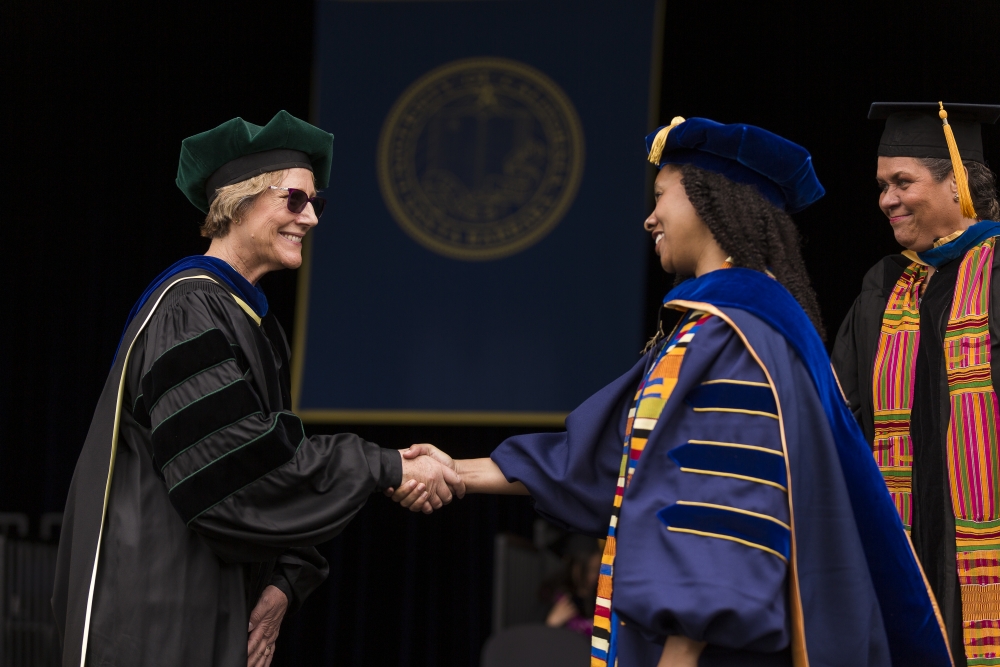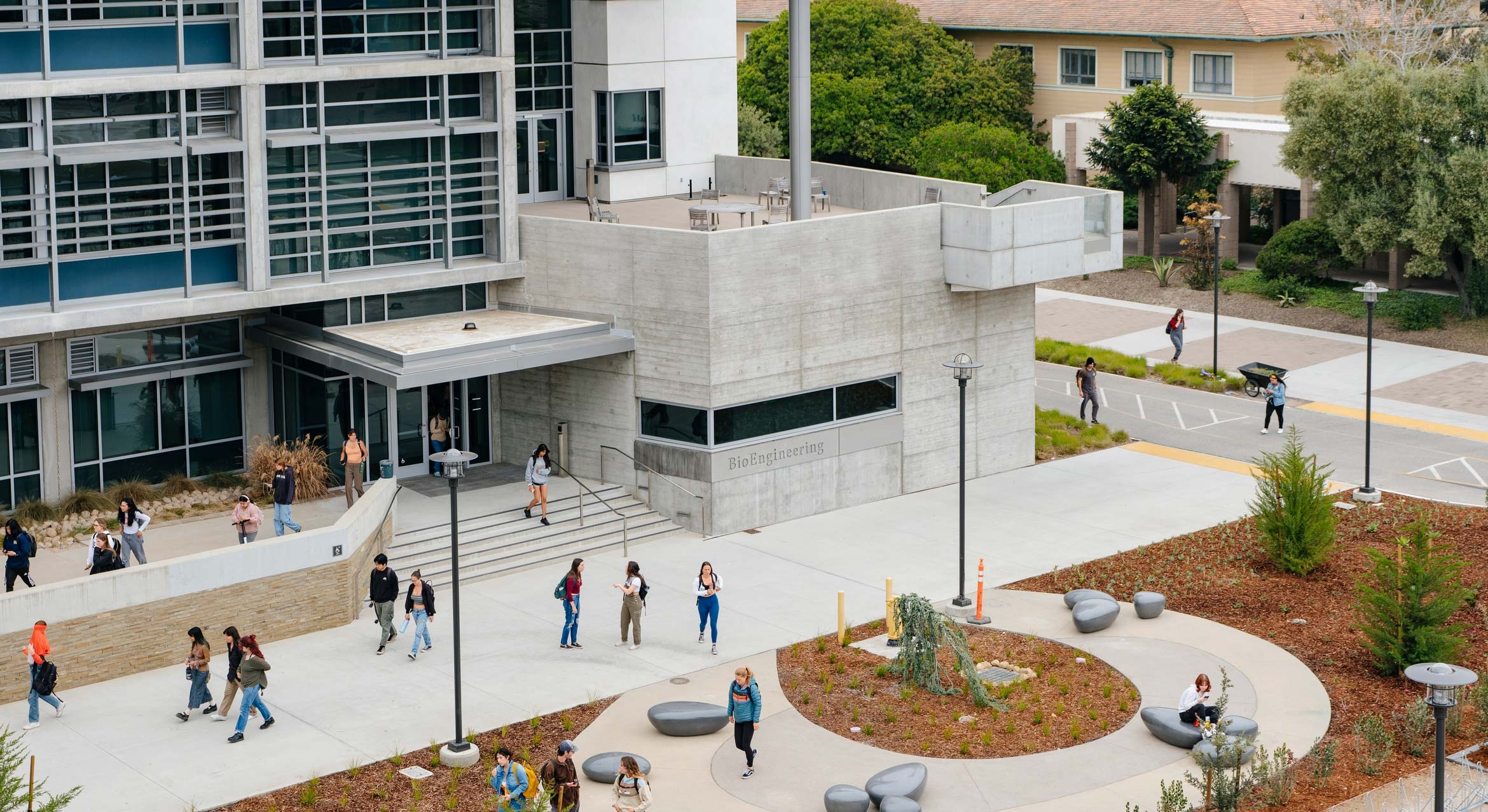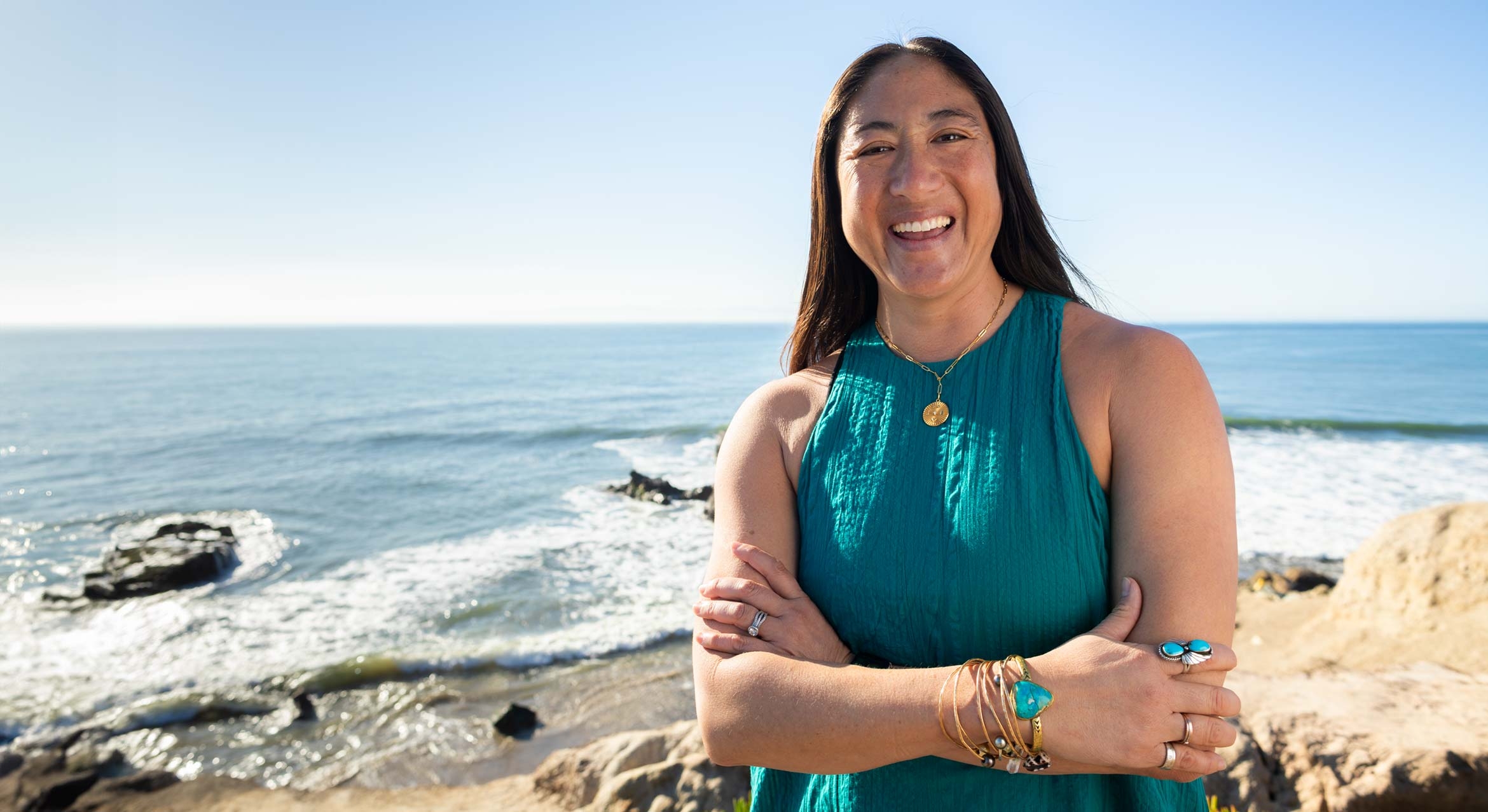
Paving the Way
It’s not a new trend: The number of people with doctorate degrees is far higher than the number of available academic jobs. As a result, many freshly minted Ph.D.s are taking jobs in private industry, government and nonprofits.
It’s not always the easiest transition. A two-day, career-focused conference of talks, workshops, panels and networking sessions at UC Santa Barbara aims to help. Beyond Academia, organized by UCSB graduate students and postdocs, is meant to offer a professional leg up to soon-to-be and recent Ph.D.s as they rapidly approach a new chapter.
The now-annual event at UCSB strives to inform graduate students and postdocs in all stages and disciplines on career options and prepare them to pursue a range of them. The 2020 gathering will be held February 28–29 at the campus’s Corwin Pavilion and University Center. A complete schedule is available at the event website.
“The Beyond Academia conference, now in its sixth year, is a wonderful resource for our campus’s graduate students and postdoctoral scholars who want to learn about the diverse career paths that a Ph.D. provides to them,” said Shawn Warner, director of professional development for the UCSB Graduate Division. “The event is unique because it is completely run by and for UCSB grad students and postdocs, so the organizers have an intimate understanding of the challenges and opportunities of the Ph.D. experience. I’m excited to be able to support this organization as the staff advisor and I look forward to seeing all of the organizers’ hard work pay off with a successful conference.”
Eight themed career panels will feature professionals working in science communication, data science, research and development, equity and investments, startups and entrepreneurship, government and public policy, nonprofits, and consulting. The conference also will offer workshops on career exploration and job hunting for early and late stage graduate students and for post-docs; on working abroad for U.S. scholars, and, for international scholars, working in the U.S.; and on interview preparation.
A keynote address will feature Vania “Vay” Cao, a clinical specialist in neurology for Mayo Clinic Laboratories in Canada and founder of Free the PhD, a curriculum-based career transition platform for STEM and other PhDs to “transition from academia into new career paths and unleash their potential.” Her talk will provide examples of how academics are forging new futures and fighting to redefine what it means to have a Ph.D. — both to others, and to Ph.D.s themselves.
Cao also will facilitate two separate workshops: one hands-on session to help students sift through diverse job functions to explore different careers, and one meant to coach early-stage graduate students in laying down the foundation now for an easier job hunt later.
“Our main goal for this year is to diversify the workshops and panels as much as possible to be able to reach more students across both STEM (science, technology, engineering and mathematics) and SHEF (social sciences, humanities, education and fine arts) disciplines,” said Shuying Yu, a graduate student in psychological and brain sciences and among the event’s organizers. “We are expanding the conference to two full days of interesting career panels and practical workshops for graduate students and scholars for the first time. We are really excited to bring in professionals for a panel on science communication this year to highlight the importance of disseminating knowledge to the public in avenues outside of academia.
“Additionally, the workshops will cater to individuals who are at different stages of their career (graduate students and post-docs) and even to international students who are interested in working in the United States after graduation,” she added. “I’m looking forward to meeting the speakers and listening to their graduate school journeys and career experiences.”
The conference at UCSB was founded by Graduate Division staff after seeing the impact that similar events were having at UC Berkeley, UC San Diego and other institutions.



